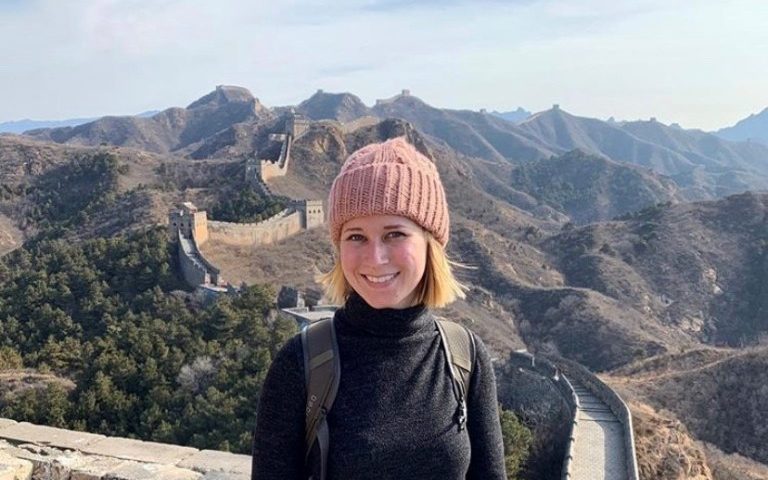The M.S. in Global Commerce (Global 3) offers an incredible opportunity to join a multicultural group of students as you study together at three top business schools in the U.S., Asia, and the EU. Hear from McIntire’s Associate Dean of Graduate Admissions below, as she answers some of the frequently asked questions from prospective students.
What makes a competitive applicant for the M.S. in Global Commerce Program?
Students in the Global 3 program are as unique as the program itself. They come from a variety of business disciplines, countries, and cultures, and bring a wide range of strengths to the program. All students must meet the minimum requirements for consideration, possess a record of academic achievement in business/management, and have less than two years of professional work experience. In addition, competitive applicants demonstrate an interest in and ability to work with colleagues from across the globe. This does not mean that they need extensive experience traveling abroad, but that they can provide examples of how they have learned with and from people whose cultural backgrounds are different than their own.
In general, strong candidates demonstrate some or all of the following:
- Seek to understand themselves and the world around them
- Are open to new experiences and new perspectives
- Are flexible and adaptable when things do not go as originally planned
- Recognize their own cultural values and biases
- Have a desire to see how business operates outside of their home country
Finally, competitive applicants can clearly articulate motivation for seeking an M.S. in Global Commerce beyond the opportunity to travel.
What does the admissions process look like?
There is a two-tiered admissions process. Completed applications are first reviewed by the admissions committee at the school to which they have applied. In the case of UVA, the admissions committee is composed of McIntire faculty who teach in the program. The committee reviews the application holistically for evidence of motivation, academic capabilities, global mindset, and management and leadership qualities. Successful applications are forwarded to a second committee comprising admissions representatives from all three business schools. This committee is responsible for making sure each candidate meets the requirements of all three schools and any other approval bodies, like the Spanish Ministry for Esade. They also look to ensure that there is diversity of backgrounds and perspectives across the class.
If invited for an interview, what should students consider when preparing?
The interview is designed as a conversation about the candidate’s interest in and fit for the program. I share with candidates that there are three things that we will try to accomplish together during the interview:
- Clarify any questions or fill in any gaps identified while reviewing the candidate’s application.
- Let the candidate provide any additional information that they may not have been able to convey in their written application.
- Allow the candidate time to ask any questions they might have about the program, the three business schools, or the locations in which they would be living.
Do you have any advice on how students should approach the letters of recommendation?
The letters of recommendation help the admissions committee see the applicant from the perspective of someone who knows the candidate well and can speak to their strengths and weaknesses as not only a student, but also as a student leader, intern, employee, or community member. The most important advice is to choose someone who can speak about more than the grade in a class or what is on your resume, because we already have that information. The writer should understand your strengths, be able to give examples, and have the time to write a thoughtful letter of recommendation for you. We do not care about the recommender’s job title or employer, but we are interested in learning more about you as a student, team member, and potential global business leader.
Can you share any essay tips?
The essay is your opportunity to reflect on who you are as a person and what’s important to you. Often, the essay prompt is asking you how you have changed or learned from your experiences or to provide insights into your choices, motivations, or decision-making process. It requires thought and deep reflection. Don’t just launch into a story, but organize your thoughts so that you know in advance the key points you wish to convey. Be authentic and provide a thoughtful response to the committee’s question.
The biggest mistake we see with essays is that the writer focuses on an accomplishment rather than a personal reflection or insights. This often leads to what is referred to as the “hero essay”—the person got the team back on track just in time to make an A+ presentation, came up with an idea that saved the internship project, or gave the speech that turned a loss into a win. The story may be accurate but lacks the personal reflection and learning that the committee is seeking. Remember, the committee wants to bring together a dynamic group of individuals who will work and study together across three continents, produce a group thesis, and help each other adjust to living outside of their comfort zones. Think about how you have grown, learned, or shared of yourself in the past and how might that inform your approach to this new opportunity.

